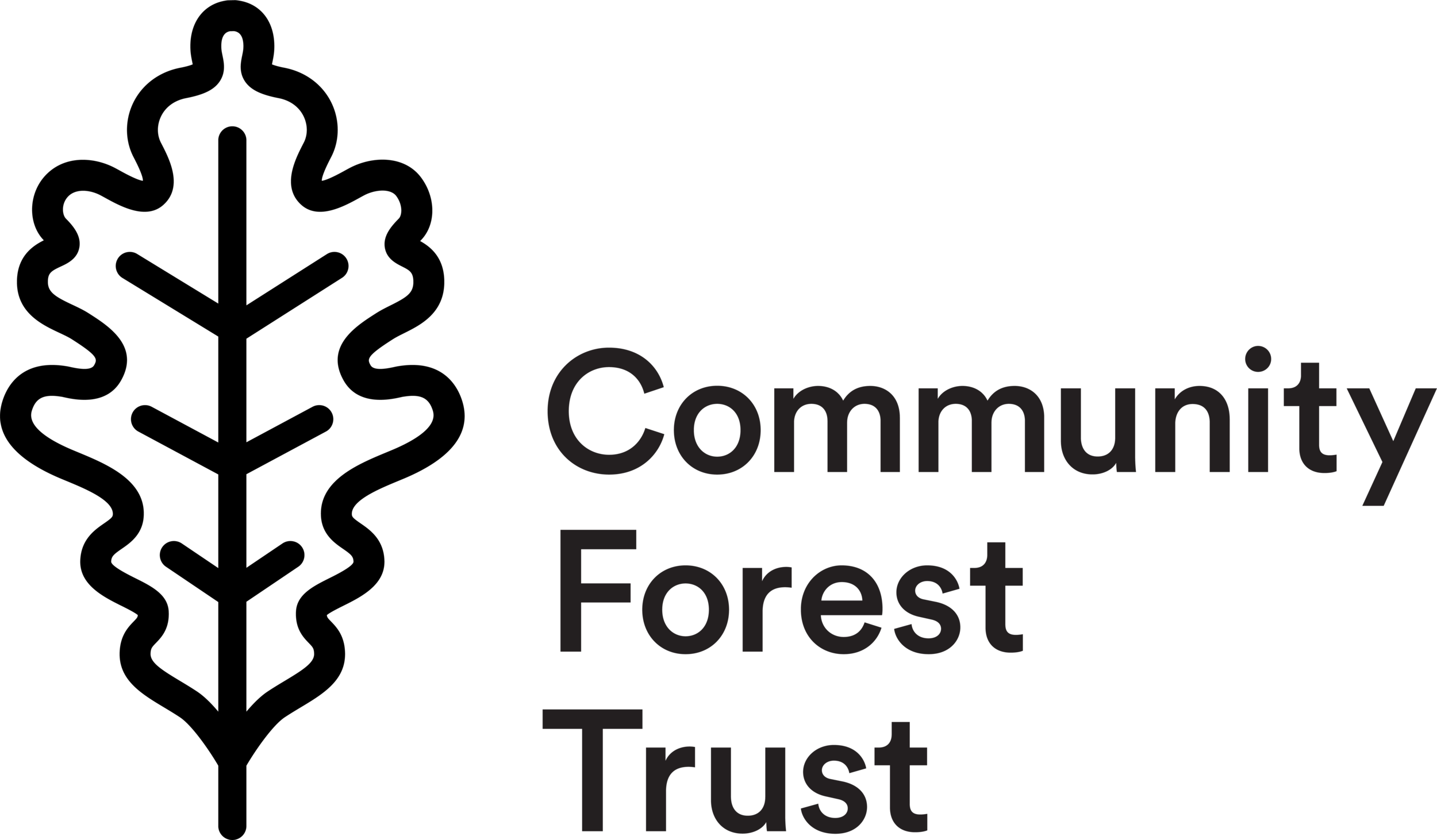England’s Community Forests welcome £640m fund to lock up carbon
Community forests across England have welcomed the pledge of significant support for tree planting, announced by the Chancellor of the Exchequer, Rishi Sunak as part of the government’s 2020 Budget and a £640m commitment to woodland creation and restoring peatland.
The Community Forest Trust and the wider network of England’s Community Forests have been calling for more support for their vital work across the country and stand ready to play their part in delivering the ambitious programme of planting and ongoing management.
CFT is the national champion for community forests in England and provides a voice for community forestry organisations that are working to plant trees. Currently it is directly supporting The Mersey Forest in North Cheshire and Merseyside, City of Trees in Greater Manchester, White Rose Forest in the Leeds City Region and Heywoods in Kingston upon Hull and the East Riding of Yorkshire.
Other initiatives in the network of England’s Community Forests include the Forest of Marston Vale, Forest of Avon, Greenwood Community Forest Partnership, the Great Western Forest, Forest of Mercia and Thames Chase Trust.
Working since 1990, England’s Community Forests have planted over 10,000 hectares of new woodland and created or improved a further 12,000 hectares of other habitats while planting or restoring 1,200 kilometres of hedgerows. 16,000 hectares of woods and green space have been opened up for recreation and leisure use and more than 4,000 kilometres of footpaths and cycle routes have been restored or created.
Paul Nolan, director of the Mersey Forest and chair of England’s Community Forests, said:
“We’ve been growing The Mersey Forest for more than 25 years ago. We've shown how trees and woodlands boost our local economy, improve our health and wellbeing and increase community spirit.
“Now we face the additional challenge of the climate emergency and the urgent need to plant many millions more trees in our area. We welcome the announcement in today’s budget to enable communities to make tree planting a priority.”
Steve Connor, chair of the Community Forest Trust, said:
“The community forests across England are an incredible force for change. They work in the towns and cities where trees can make the biggest difference. From the health of a child, to the risk of flooded homes, letting nature flourish and of course fighting the climate crisis, we can and already do make a huge difference for millions of people.
“What makes community forests so different is that they are truly rooted in local communities. Local people and businesses are out there, right now, planting and managing community forests right across the country. Citizen foresters, shaping their own future for the better, using nature.”
Jessica Thompson, Director of Manchester City of Trees said:
Trees could be one of the best solutions to our climate emergency – multifunctional, living tools that help make our urban areas more resilient to challenges of a rapidly changing environment. It’s fantastic that more resources have been unlocked to help us sow more saplings across England”
The link between tree planting and the mitigation of climate change is well documented and with climate emergencies declared, the new Budget announcement is welcomed by the community forests.
While forests hold hundreds of millions of tons of carbon in their soil and biomasses, tree planting can also offer a means to address the problem of flooding in our towns and villages, reducing the risk to local businesses and families by slowing and intercepting water flow.
In the Leeds City Region, White Rose Forest’s ‘Landscapes for Water’ programme does just that by working closely with Yorkshire Water, National Trust and other landowners to create landscape scale tree planting led natural flood management schemes, which help reduce flooding in cities like Leeds, Bradford and urban areas of the Calder Valley.
At Lyme Park, Cheshire, City of Trees and the National Trust is planting up five hectares of new woodland - 10,000 trees with the ability to intercept 1,452 cubic metres of stormwater per year. On Crompton Moor above Shaw in Oldham an experimental planting project is examining how trees and ground preparations can help reduce the potential for flooding down-stream.
In our communities, families and schools, community forestry can impact the areas of greatest socio-economic need, delivering lasting health and wellbeing outcomes through engaging programmes that make a real difference to individual lives.
The new commitment to funding means that projects like the Mersey Forest’s South Liverpool Urban Garden partnership with Employable Solutions, which has transformed derelict land in Garston into a thriving outdoor community space, can continue to be replicated.
Similarly, projects such as HEYwood’s partnership with East Riding of Yorkshire Council and Parkside Primary School to plant 3,500 native trees on its large area of green space, involving over 500 school children, can reach its full potential.

